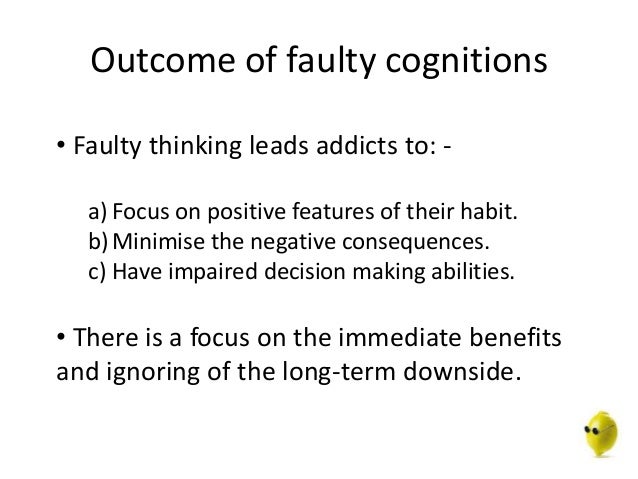
According to the Diagnostic and Statistical Manual of Mental Disorders – Fifth Edition, gambling disorder is a condition characterized by persistent problematic gambling behavior that leads to clinically significant impairment or distress. Roughly 2 percent of the U.S. adult population has a gambling disorder, and current estimates of prevalence in the military are even lower, in the range of 0.3 – 1.2 percent. However, due to concerns about potential gambling problems in the military population, there are major efforts underway to screen everyone across the military for a gambling disorder. This sounds good in theory; gambling disorders are serious and are associated with bankruptcy, criminal behavior, domestic violence, and increased risk for suicide. In practice, however, universal screening may not be simple to implement. Several factors need to be considered:
- The faulty thinking that surrounds a gambling addiction, according to the cognitive approach, is the belief that we will win, or at least be able to control the odds of winning, for example, a gambling addict, using his/her ‘lucky numbers' on the lottery gives them some control over the outcome of the gamble.
- Recent psychological-based theories seem to provide some solid ground for further research. We highlight four areas for future consideration for research. (1) Most studies have generalized findings from one form of gambling to another.
Psychological Theories Gambling Addiction
1. Are accurate screening instruments readily available?
Social Psychological Theories List
2. How common are gambling disorders in the military?

According to the Diagnostic and Statistical Manual of Mental Disorders – Fifth Edition, gambling disorder is a condition characterized by persistent problematic gambling behavior that leads to clinically significant impairment or distress. Roughly 2 percent of the U.S. adult population has a gambling disorder, and current estimates of prevalence in the military are even lower, in the range of 0.3 – 1.2 percent. However, due to concerns about potential gambling problems in the military population, there are major efforts underway to screen everyone across the military for a gambling disorder. This sounds good in theory; gambling disorders are serious and are associated with bankruptcy, criminal behavior, domestic violence, and increased risk for suicide. In practice, however, universal screening may not be simple to implement. Several factors need to be considered:
- The faulty thinking that surrounds a gambling addiction, according to the cognitive approach, is the belief that we will win, or at least be able to control the odds of winning, for example, a gambling addict, using his/her ‘lucky numbers' on the lottery gives them some control over the outcome of the gamble.
- Recent psychological-based theories seem to provide some solid ground for further research. We highlight four areas for future consideration for research. (1) Most studies have generalized findings from one form of gambling to another.
Psychological Theories Gambling Addiction
1. Are accurate screening instruments readily available?
Social Psychological Theories List
2. How common are gambling disorders in the military?
3. What are the consequences of screening?
The Psychological Health Center of Excellence recently published a systematic review in the Journal of Clinical Epidemiology which evaluated the accuracy of screening instruments for gambling disorder. After reviewing more than 16,000 articles, we found that:
- Only three screening instruments for gambling disorder had been adequately validated, and none of these instruments had been tested on a military or veteran population.
- The accuracy of all three instruments was generally low, and they had the potential to misclassify a large proportion of service members screened.
Cognition, prevention and treatment. ^ a hampton beach casino concerts 2019 b Kausch, Otto (September gambling psychology theory 2003). Biological Psychiatry. The theory behind popular casino gambling games, form blackjack to poker. It usually begins in adolescence in men and later in women. Advertisement And, again, the playground design wins.
We tested how well the three screening instruments would perform on a population of 1.3 million active-duty service members. Using the most conservative of the three screening instruments, we found that 97 percent of service members who screened positive actually would NOT have a gambling disorder. If universal screening was deployed, that means that almost 994,000 service members without gambling disorder likely would be identified as having the disorder and would need follow-up assessments and potentially be referred for care.
This is not unusual. In order to identify a small number of cases with a rare disorder, universal screening for a rare condition commonly results in thousands of people being falsely identified as potentially having that disorder. Our paper discusses strategies to improve screening efforts including screening only those service members who have other conditions that make them already at higher risk or who are stationed in military areas with high concentrations of known gambling problems. See this poster presentation for more on the behavioral, demographic and proximal risk factors for pathological gambling in the military community.
Our review concludes there is a lack of adequate evidence to support population-level screening for gambling disorder using current instruments. More rigorous research on screening instruments is needed using adequate reference standards, generalizable study populations, and outcomes related to the downstream effects of screening.
Learn more about gambling problems, treatment options, self-help tools, and resources to help veterans overcome gambling-related issues at Make the Connection.
Dr. Belsher is the chief of research translation and integration at the Psychological Health Center of Excellence. His primary areas of focus include deployment-related mental health, systematic review methodologies, health services research, dissemination of evidence-based mental health practice, and collaborative care.
Psychological Theories List
Dr. Otto is a contracted senior epidemiologist supporting the Psychological Health Center of Excellence. She serves as a subject matter expert for health services population research, evidence synthesis, and research gaps identification and prioritization.
Psychological Theories Of Criminal Behavior
The views expressed in Clinician's Corner blogs are solely those of the author and do not necessarily reflect the opinion of the Psychological Health Center of Excellence or Department of Defense.
